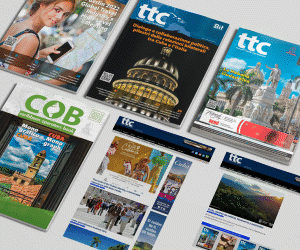by Frank Martin
According to specialized studies, the world tourism industry, which is closely linked to nature, has a growing problem that needs urgent solutions: greenhouse gas emissions that accelerate climate change.
Scientists from all over the world confirm that the sector, with its millions of travelers a year, is responsible for 9 to 12% of the total global emissions of those gases.
An international report on subject highlighted that the social and environmental costs of the planet are very high.
In the nowadays full restoration of the universal industry after the pandemic, the authorities that manage this leisure sector think that the opportunity to act against greenhouse gases cannot be missed.
The strategy needed to exercise more effective control over the problem is also expensive and complex, but it has no alternatives.
The global travel and tourism industry creates opportunities for the world’s societies, economies and nature.
However, the most recent international report on the phenomenon shows that the industry is currently generating significant environmental and social costs and is responsible for 9-12% of total global greenhouse gas emissions.
The aforementioned report found that these emissions will increase by 20% by 2030. This is bad news in relation to the feared climate change and its destructive effects.
There are urgent needs to reduce emissions, protect and restore nature, strengthen communities, change traveler behavior, and increase resilience to climate change, among other needs.
Experts believe that investments in transport improvements, facilities, nature protection are justified and, moreover, can be afforded.
Industry calculations indicate that immediate financing for climate-neutral investments would be needed by 2030
One expert’s conclusion is that these funds will drive strong and sustainable growth in a more protected world.
One frequent warning about these plans is that if they don’t come to fruition, the opportunity for a better future for the world, and within it, for tourism, will be lost.
A step forward has been the recent COP27 summit in which the attendees agreed to create a fund to help the nations that are suffering the most from global warming and have contributed the least to it.
After intense negotiations last November in the Egyptian town of Sharm el-Sheikh, an agreement emerged to establish the aforementioned financing mechanism.
UN Secretary General Antonio Guterres, in a video message broadcast from the conference venue, called the deal an important step towards justice.
“Clearly this will not be enough, but it is a much-needed political signal to rebuild broken trust,” he stressed.
Tourism has proven to be one of those responsible for climate change.
But she is also one of the victims and one of the most vulnerable.
The loss of sea ice, the accelerated rise in sea level and more intense heat waves are consequences that could gradually “kill” the best tourist landscapes in the world.
Net annual costs will increase over time as global temperatures increase. The intensity, frequency, and duration of North Atlantic hurricanes, as well as the frequency of the strongest (category 4 and 5) have increased since the early 1980s.
The price that humanity will have to pay for these changes and the catastrophes cannot yet be calculated. Nor can it be ignored.
FM

MORE NEWS











